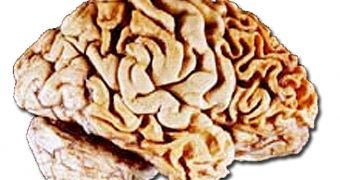A group of research scientists at the Mayo Clinic announces the discovery of a mechanisms underlying the development of an early form of dementia. The mechanisms is “powered” by two proteins, called progranulin and sortilin, whose interactions seem to cause FTLD.
This condition, translated as frontotemporal lobar degeneration, is an incurable form of dementia that tends to occur in younger populations, rather than in seniors, such as other dementias.
FTLD mostly affects areas of the human brain that are involved in determining personality, behavior, and language, experts say, and the reason why it prefers younger individuals is still a mater of debate.
In a paper appearing in the latest online issue of the American Journal of Human Genetics, the Mayo team explains that the connection between the two proteins could be used to develop a new treatment to target FTLD, this time with more success.
“We now can look for a direct link between these two proteins and the development of FTLD. The hope is that if we do find a strong association, it might be possible to manipulate levels of one or both of these proteins therapeutically,” says Rosa Rademakers, PhD.
The expert holds an appointment as a neuroscientist at the Mayo Clinic, and was also the lead author of the new research paper, PsychCentral reports.
What's interesting about these conclusions is that they were unwittingly confirmed by a team of experts from the Yale University, who determined in a separate study that sortilin is indeed associated with progranulin.
That study appears in a recent issue of the esteemed scientific journal Neuron, and was authored by Yale professor Stephen Strittmatter, MD, PhD.
The Mayo team reveals that FTLD may in fact be considered to be a family of brain diseases, all of which could shore at least one common molecular features. All forms of the condition have mutations on tau protein-producing genes.
As discovered by the Mayo team back in 2006, mutations in the progranulin gene can also be found across the board, in people suffering from all forms of FTLD.
The recent investigations led the group to the protein sortilin, which plays a host of important roles in the brain, such as for example preventing neuron death. The findings were derived from a genome-wide association study (GWAS).
“So, using a genetic approach, we identified a previously unknown connection between sortilin and progranulin,” Rademakers concludes.

 14 DAY TRIAL //
14 DAY TRIAL //